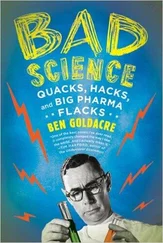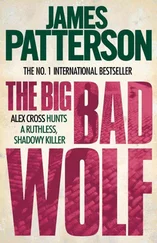“Yes,” Lawrence will whisper, as the testicle bursts in his mind. And then he’ll collapse on the floor as if kicked in the groin by a steer, the crowd falling silent save for the whimpering of the freshly circumcised baby, and Susan will come to his side with a glass of tap water and rub his back and the whole ruined day, much to everyone’s silent dismay, will once again end up being about him: Lawrence Fields, the recently widowed widower who’s been having a hard time getting his wheels back in the ruts.
These are the things that have haunted Lawrence since Anne’s death: the ugly truths, the fish heads and foreskins. He no longer goes to the post office and sees boxes and envelopes and imagines love notes and hand-knit sweaters. Instead, he sees divorce papers, sperm samples, chunks of heroin, hate mail. When he goes to the grocery, he does not see a pound of hamburger meat; he sees an Angus, electrocuted, its throat slit, its knees buckling, its hooves chopped off and saved for school glue, its body pushed through a sieve. When he goes to the movies alone and sees couples holding hands, nuzzling over popcorn, he does not imagine them going home after the credits roll to have the sort of relations he and Anne saw fit to have, the sort where a man and a woman lay like flatware in a starched bed, a nightgown lifted at the back, a fly open for the time it takes, a gasp as if they’ve both spotted a rare bird, an offered tissue, twin goodnights. On the contrary: he sees two figures, tangled as if thrown from a height, faces thrown back in agony, skin clawed and mashed and kneaded in desperation, as though the man and woman are climbing out of hell on one another’s bodies.
But to answer Susan’s question: Lawrence is not, at least, going to church. The last time he was there was for Anne’s service, at which he sat in the front row, dabbing a handkerchief about his forehead as he pictured his wife soon underground, the weight of six cubic feet of fresh earth straining the coffin hinges, pushing the quilted silk an inch from her nose. Lawrence had pitched forward in the pew, white and breathless, and Susan had done her best to fan away his terror with a funeral program while the congregation murmured and the minister paused and the organ’s last notes hung in the air like a distant siren, but it had a been a futile effort on her part. So, no: he has not been back since.
*
The drive from Lawrence’s house in Clifton to Susan’s house in Merona is just under four hours. Lawrence figures he can do the drive without using a public bathroom if he forgoes his morning coffee and relieves himself in his own bathroom right before leaving and in Susan’s powder room immediately upon arriving. But at seventy, his bladder has been known to betray him, so there is no guarantee this will be the case. Lawrence wavers, pacing, eventually honest: he must prepare something to urinate in. He goes to the kitchen and soaks the label from a mayonnaise jar, then he dries the jar and sets it on the counter only to imagine it rolling about the car, its visible golden contents sloshing, a specimen of lukewarm humiliation. He decides that something opaque might be better, maybe the plaid thermos he once used for lunch soup. He knows this is appalling, but he will not, cannot, venture into a gas station men’s room.
Without Anne, Lawrence is back to who he was before: the boy who watched girls at ballroom dance class and thought only of his father’s medical book, the pink reproductive system shaped like a sheep’s head. He’s once again the boy who slouched on the sidelines at football games and heard the fabricated crack of spinal cords, the one who imagined school buses plunging over overpasses, classmates exploding from them like sparks from a firework. He’s the boy who once went into a men’s bathroom and, upon seeing a pile of human feces in the urinal, ruminated for two months on how that scenario came to pass.
Without Anne, Lawrence is back to when it all began: age eleven, his mother’s funeral. During the service, Lawrence stared at the cathedral crucifix, at Christ’s billowed ribcage and trussed arms and wondered, for the first time, horrified and faint: How did the nails hold the weight of his body? How was Jesus nothing more than a wet towel hung up by thumbtacks? Lawrence heard nothing of his mother’s contributions to the Women’s Club or of her devotion to the good cause of literacy or of her notable knack with camellias. He thought little of how his life would change without her, of how it would now be him and his father and tough steak and canned potatoes and goodnights with a distant, unperfumed silhouette in the bedroom doorway. All he saw that day were Christ’s shoulders dislocating and the nails tearing through his palms and the Son of God dangling like a child’s loose tooth.
Anne had saved Lawrence from religion’s gore. He followed her to Walnut Ridge Church, where the communion wafers were wheat not bonemeal, where the wine was wholesale red table not blood. There was no talk of stigmata or abortion. No statues of weeping saints. No cardboard rice bowls printed with pictures of starving children. Above the altar hung no crucifix, just a maple, lowercase t , that conjured, for Lawrence, feelings of clarity, charity, country lanes and roasted chicken. The homily, the whole experience really, was cerebral; there was nothing ghastly or corporeal about any of it. Every Sunday, when the service was over, the congregants gathered for black coffee in the vestry where they talked of the relative humidity, of zoning laws. Then, after just enough socializing to make them feel human but not trespassed against, Lawrence and Anne would return home, feeling nothing near guilt, but something near hunger, and before they ate their egg salad sandwiches on the porch by the hummingbird feeder, they said grace silently and separately without fanfare or fuss.
Lawrence places the washed mayonnaise jar in the cabinet and decides. Plaid thermos it will be.
*
When Lawrence raises his head, he sees glass on the passenger seat, a fly already on the dashboard, opportunistic. The car releases a resigned hiss out into the still day. Lawrence looks for the rear-view mirror, but it is gone. He touches his nose and there, on his fingertips, is the beginning of blood. He turns to look out the back window, and he can see the horse, an unmoving mound in the road. Lawrence stares at the highway behind him for oncoming cars. In the far distance stands a fence worker, a black post on the horizon.
Lawrence tries the front doors, but they will not open. He works hard to pry his knees from under the steering wheel, rotating his old body toward the backseat. As he frees himself, Lawrence feels he is crawling toward some elusive surface, like an animal in tar. He pauses, panting, on all fours on the front bench seat, before continuing, limb over limb, into the back, where he gives out, on top of his suitcase, a carcass washed ashore.
His suitcase is packed the way his father taught him to pack: in neat, necessary squares of shirts and briefs, handkerchiefs and pajamas. He thinks of this as he tries not to think of the horse, up and over the car. Again and again. The horse up and over the car. Three mammoth thumps. The first, on the windshield, the loudest. The second, on the rear of the car, invisible. The third, behind him, the end. The groan of pain and metal. Lawrence presses himself against the suitcase as the horse rewinds and replays. Up and over the car, squares of shirts and briefs. Up and over the car, handkerchiefs stacked like white envelopes.
After his mother’s funeral, Lawrence and his father had gone home alone. His father did not turn on a single light in the house, and in the silent dusk they went from room to room, drawer to drawer, shelf to shelf, still dressed in their black suits, and put like things with like things. Yellow pencils bound with rubber bands like firewood, bars of soap stacked like marble slabs, soup cans lined like steel barrels. “Order,” his father said, as they worked, “is all we have now, Lawrence.” When they were done, his father went and lay down on top of his made bed, still wearing his shined oxfords, and Lawrence went upstairs to his room alone and opened his top bureau drawer. In the night, by touch, he rolled his white socks into unhatched eggs, then lined them up, all in a row, some light in the dark.
Читать дальше












